Search
Remove Ads
Advertisement
Summary 
Loading AI-generated summary based on World History Encyclopedia articles ...
Search Results
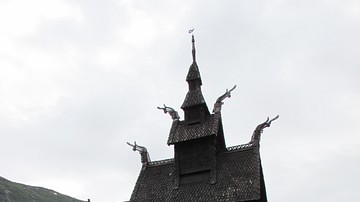
Article
Stave Churches: Norway’s National Treasures
Stave churches are the most famous medieval buildings in Norway and are admired for their unique architecture and beautiful decorations. They are named after the staves or masts that hold up the main structure of the church. Only 28 stave...
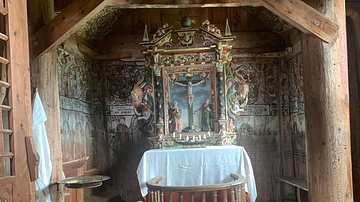
Image
Interior - Urnes Stave Church
The interior of Urnes Stave church in Ornes, Norway. The church dates from c. 1130 CE and was included on the UNESCO World Heritage list in 1979 CE. Most of the interior dates from the 17th century CE.

Image
Borgund Stave Church
The Borgund Stave Church, Norway. The church dates from c. 1180.
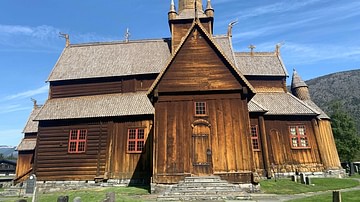
Image
Lom Stave Church
Lom Stave Church, Norway. The church has been standing since the last half of the 12th century CE.
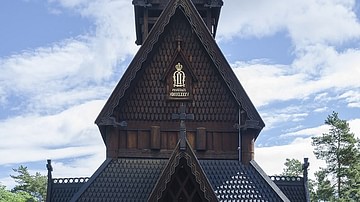
Image
Gol Stave Church
Gol Stave Church dates from c. 1200. The church was bought in 1884 and moved to Oslo. It is standing today at The Norwegian Museum of Cultural History at Bygdøy.
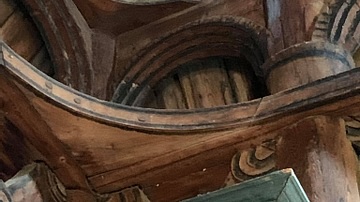
Image
Runes in the Lom Stave Church
Runes left from the construction of Lom Stave Church. The church has been standing since the last half of the 12th century CE, and the runes spell out "I was here, all the way up in the corner”.
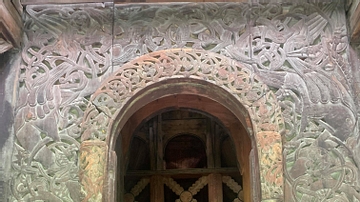
Image
Entrance to Borgund Stave Church
Woodcarvings on Borgund Stave Church. The church dates from c. 1180 CE.

Image
Dragonhead Decorations - Borgund Stave Church
The exterior decorations at Borgund Stave Church, Norway depicting dragon heads, c. 1180.

Image
Urnes Stave Church
The Urnes Stave church in Ornes, Norway. The church dates from c. 1130 CE and was included on the UNESCO World Heritage list in 1979 CE.
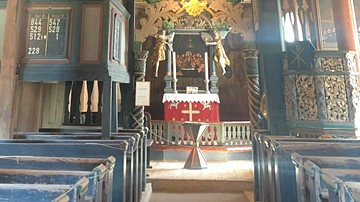
Image
Interior - Lom Stave Church
The interior of Lom Stave Church, Norway. The church has been standing since the last half of the 12th century CE but much of the decor dates from later periods.